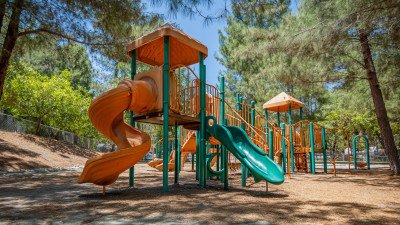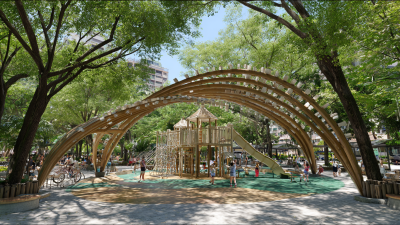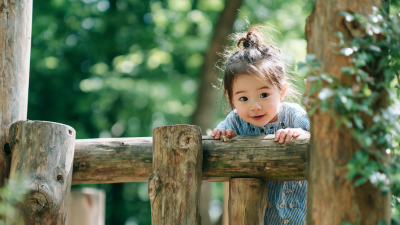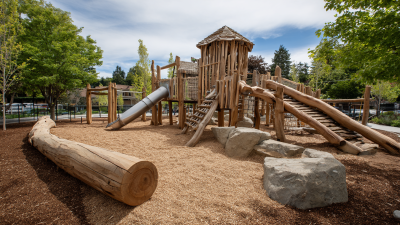 +86-13901441113
+86-13901441113




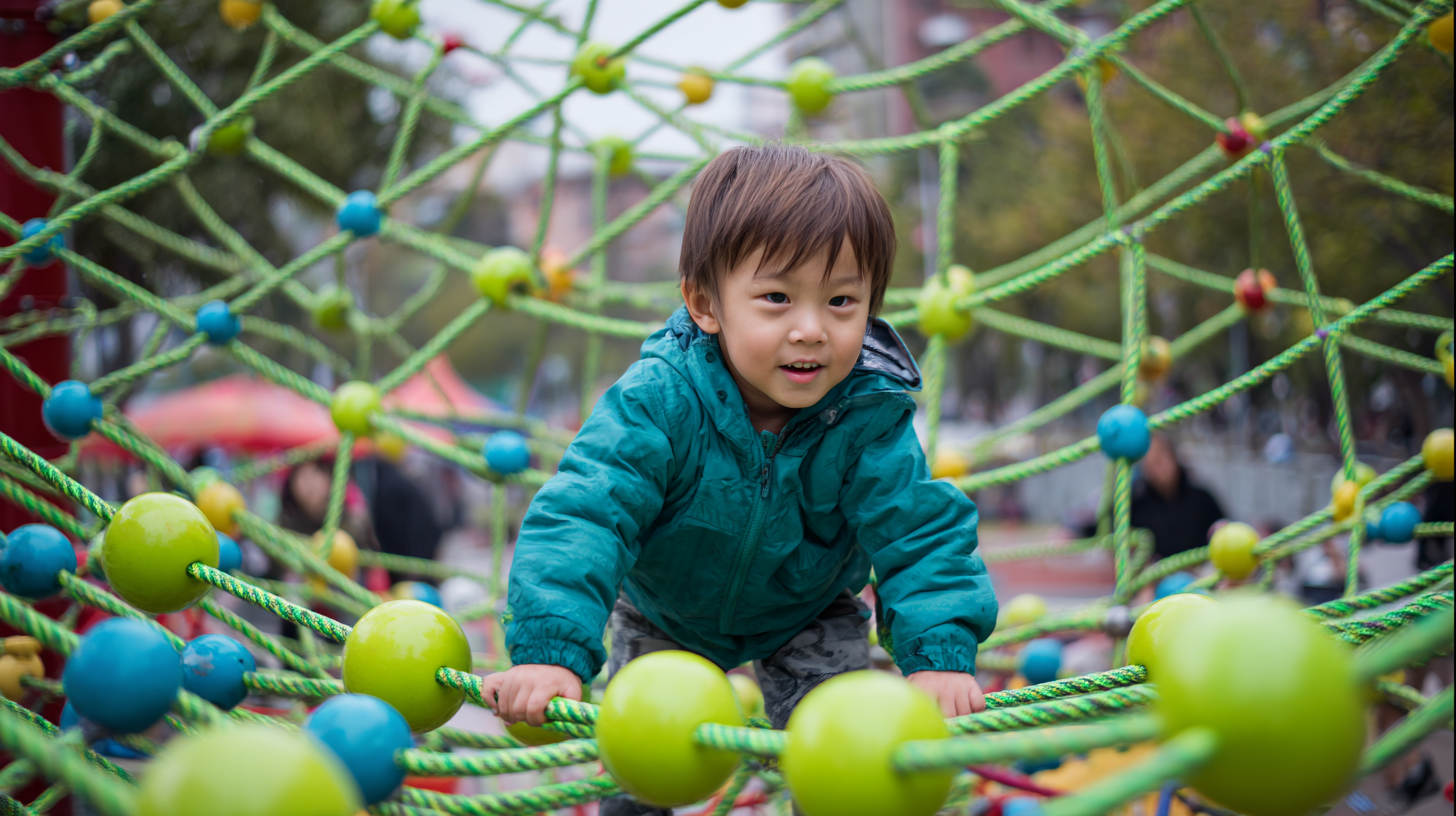 Engaging in outdoor play, particularly in well-designed environments such as 'Top Playgrounds', is crucial for fostering holistic child development. According to a report by the American Academy of Pediatrics, children who participate in regular outdoor activities exhibit improved physical health, with a 25% lower risk of obesity compared to their sedentary peers. Furthermore, the National Association for the Education of Young Children highlights that outdoor play enhances social skills and emotional well-being by providing opportunities for children to interact, collaborate, and resolve conflicts in a natural setting. 'Top Playgrounds' offer more than just a place to play; they are vital spaces for children to explore their creativity, develop critical motor skills, and build resilience. As we delve deeper into the multifaceted benefits of outdoor play, it becomes clear that investing in high-quality playground experiences is essential for nurturing well-rounded, healthy, and engaged children.
Engaging in outdoor play, particularly in well-designed environments such as 'Top Playgrounds', is crucial for fostering holistic child development. According to a report by the American Academy of Pediatrics, children who participate in regular outdoor activities exhibit improved physical health, with a 25% lower risk of obesity compared to their sedentary peers. Furthermore, the National Association for the Education of Young Children highlights that outdoor play enhances social skills and emotional well-being by providing opportunities for children to interact, collaborate, and resolve conflicts in a natural setting. 'Top Playgrounds' offer more than just a place to play; they are vital spaces for children to explore their creativity, develop critical motor skills, and build resilience. As we delve deeper into the multifaceted benefits of outdoor play, it becomes clear that investing in high-quality playground experiences is essential for nurturing well-rounded, healthy, and engaged children.
Outdoor play is a crucial aspect of child development, providing numerous benefits that promote physical, emotional, and social growth. Engaging in unstructured outdoor activities allows children to explore their surroundings, develop motor skills, and strengthen their physical health. Activities such as climbing, running, and jumping not only improve coordination and balance but also foster a sense of adventure and confidence in young explorers. Exposure to natural environments stimulates curiosity and wonder, encouraging children to engage with the world around them.
Moreover, outdoor play significantly enhances social skills. When children play together in a playground setting, they navigate social interactions, practice teamwork, and learn conflict resolution. These experiences are essential for developing empathy and communication skills, both of which are fundamental for building relationships throughout life. Additionally, outdoor play can serve as a stress-reliever, allowing children to express themselves freely and experience joy in a natural setting. Overall, prioritizing outdoor play in children's daily routines is vital for cultivating well-rounded individuals who are not only physically healthy but also emotionally and socially competent.
Playgrounds are more than just a place for children to burn off energy; they are vital environments that foster physical, social, and cognitive development. A quality playground experience includes a variety of elements that cater to different aspects of a child's growth. For example, equipment that promotes climbing and jumping enhances motor skills while encouraging children to take risks and build confidence. Additionally, spaces for imaginative play, such as pretend houses or open areas, nurture creativity and social interactions among peers.
**Tips for Enhancing Playground Experiences:**
Incorporate diverse play structures that allow for both individual play and group activities. Look for playgrounds that include sensory elements, such as textured paths or musical instruments, to stimulate all five senses. Encourage your child to explore and engage with different areas of the playground, fostering independence and problem-solving skills as they navigate challenges.
Another essential aspect of a quality playground is inclusivity; a well-designed playground makes accommodations for children with varying abilities, ensuring that every child can participate and enjoy themselves. Pay attention to shade and seating areas for caregivers, fostering a safe and comfortable environment for everyone involved. Emphasizing these key elements helps create a rich and fulfilling playground experience that contributes profoundly to child development.
| Element | Description | Benefits |
|---|---|---|
| Physical Equipment | Slides, swings, climbing structures that promote active play. | Enhances motor skills, strength, and coordination. |
| Natural Elements | Incorporation of trees, rocks, and nature trails in playground design. | Boosts creativity, mental well-being, and connection to nature. |
| Inclusive Design | Features that cater to children of all abilities and backgrounds. | Promotes social skills, empathy, and teamwork among peers. |
| Open Spaces | Areas for free play, running, and unstructured activities. | Encourages independence, decision-making, and social interactions. |
| Structured Programs | Guided activities or play sessions led by trained facilitators. | Enhances learning experiences and develops new skills. |
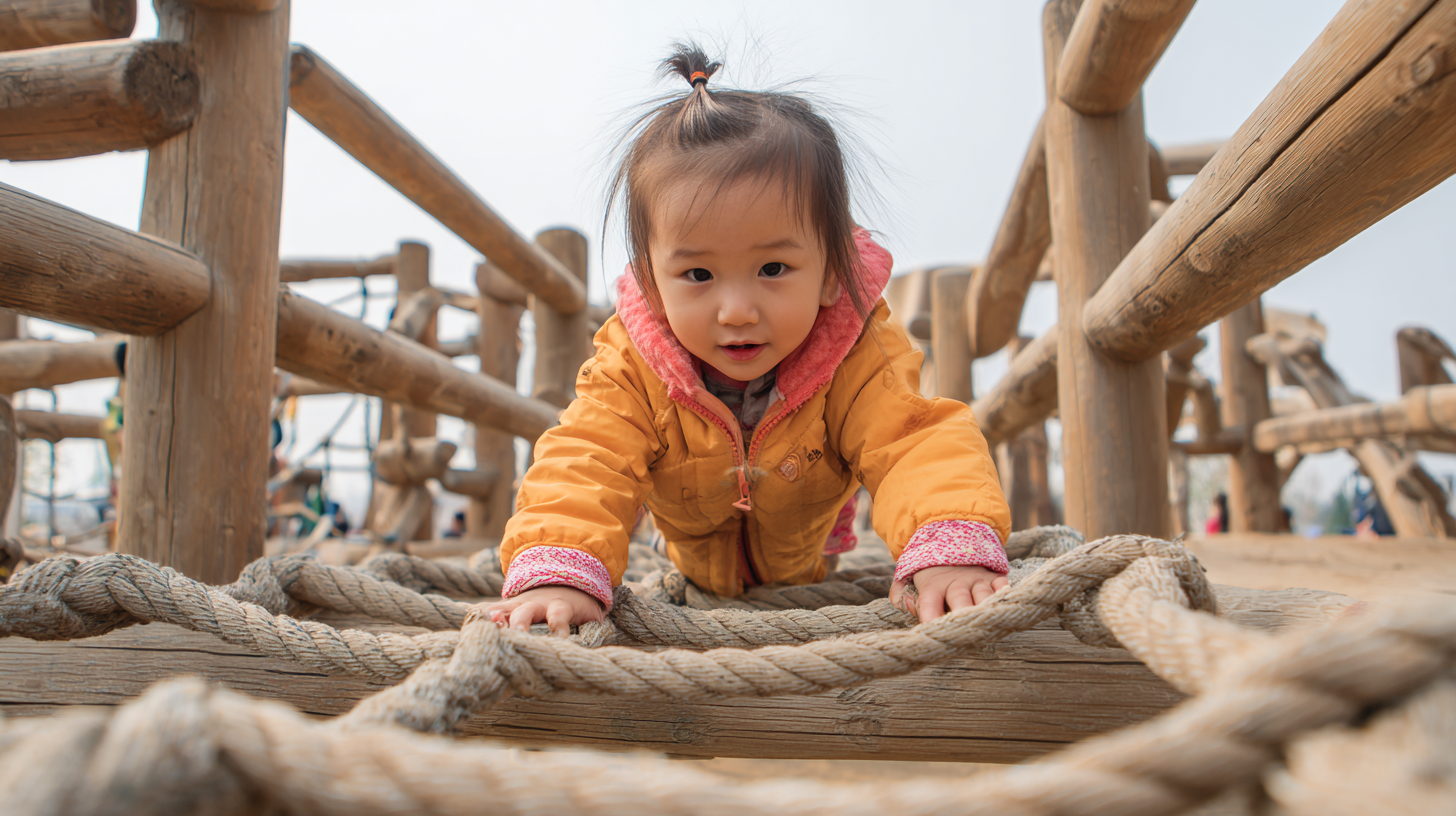 Outdoor play is crucial for children's development, offering them the opportunity to enhance physical, cognitive, and social skills. According to the American Academy of Pediatrics, children who engage in regular outdoor play experience improved physical health and reduced symptoms of anxiety and depression. However, encouraging children to participate in outdoor activities can sometimes be challenging. Strategies that promote outdoor play are essential in fostering a healthy lifestyle for children.
Outdoor play is crucial for children's development, offering them the opportunity to enhance physical, cognitive, and social skills. According to the American Academy of Pediatrics, children who engage in regular outdoor play experience improved physical health and reduced symptoms of anxiety and depression. However, encouraging children to participate in outdoor activities can sometimes be challenging. Strategies that promote outdoor play are essential in fostering a healthy lifestyle for children.
One effective way to encourage outdoor play is to create inviting environments. Studies show that access to well-designed playgrounds and green spaces significantly increases children’s physical activity levels. The Centers for Disease Control and Prevention (CDC) highlights that communities with plentiful parks and recreational facilities have children who are more active, with a notable 23% increase in outdoor play observed among families living near such amenities. Furthermore, parents can also play a pivotal role by setting aside dedicated outdoor time, promoting organized activities like nature walks or sports, and leading by example, as children are more likely to engage in outdoor activities when they see adults participating alongside them.
Outdoor play is essential for child development, and integrating nature-based activities into playground design can significantly enhance these experiences. Research indicates that children who engage in nature-based play exhibit improved cognitive and social skills. A report by the National Recreation and Park Association (NRPA) highlights that 83% of parents believe their children are happier and healthier when they spend more time outdoors, underscoring the critical role of nature in promoting well-being.
By incorporating elements such as natural landscaping, climbing structures resembling tree branches, and water features, playgrounds can offer children unique opportunities for exploration and imaginative play. A study published in the Journal of Play Research found that children who played in nature-rich environments had 20% higher levels of physical activity compared to those in traditional playgrounds. Furthermore, these environments encourage collaboration and social interactions, fostering essential teamwork skills. Thus, designing playgrounds with nature in mind not only nurtures physical fitness but also supports emotional and social development, laying the foundation for well-rounded growth in children.
This chart illustrates the impact of various nature-based activities integrated into playground design on child development, focusing on areas such as physical fitness, creativity, social skills, and emotional well-being.
Outdoor play is crucial for fostering social skills in children, as it provides natural opportunities for interaction and collaboration. According to a report from the American Academy of Pediatrics, children who engage in outdoor play are more likely to develop important social competencies, such as empathy, negotiation, and cooperation. This is primarily due to unstructured play scenarios that require kids to work together, resolve conflicts, and communicate their needs effectively in a dynamic environment.
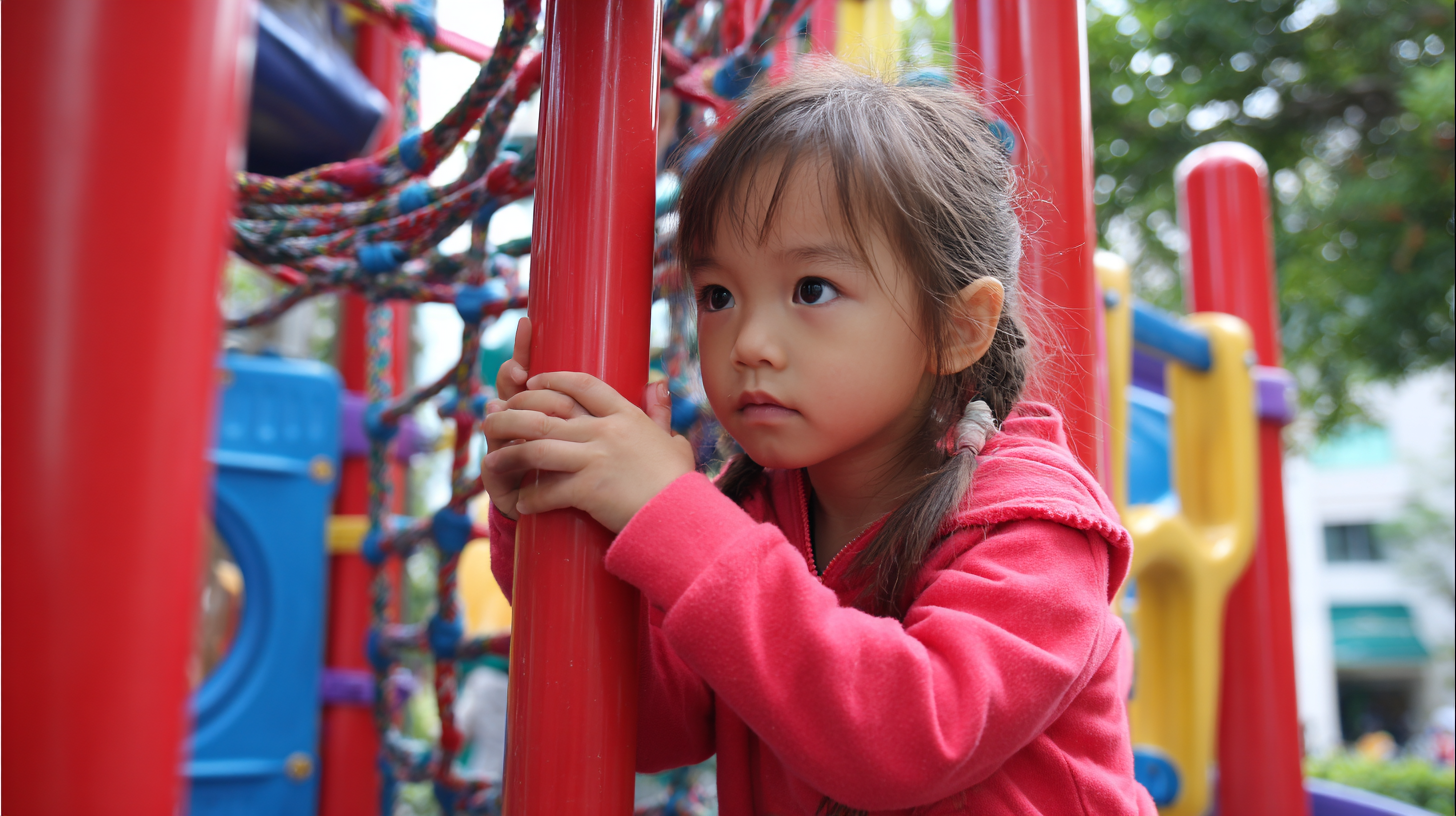
Research conducted by the Institute for Childhood Development shows that children who regularly participate in outdoor play initiatives demonstrate a 25% increase in their ability to collaborate with peers by age 6. These experiences in a 'Top Playground' setting—complete with varied physical structures and imaginative play areas—encourage children to engage with one another, leading to improved interpersonal skills. Furthermore, the ability to navigate diverse social situations in an outdoor playground context translates into better emotional regulation and conflict resolution skills, equipping children with the tools they need to thrive both socially and emotionally throughout their lives.
